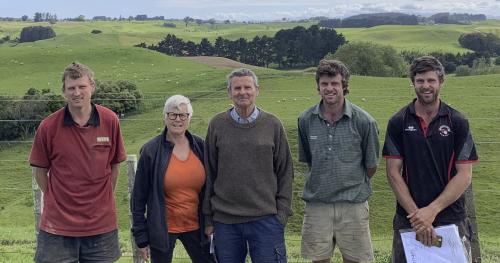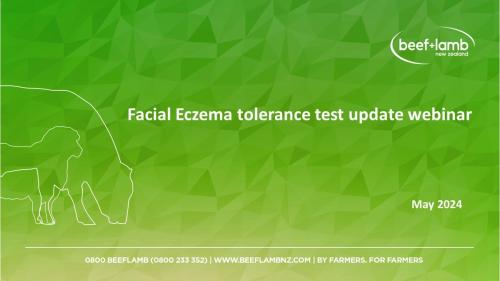Search results
Displaying 301 - 310 results of 909
- Resource book… sires have higher value top ranked sire weaning weight has heaviest weight … scanning trait data cohort 5 inclusive weaning weight trait data results table one … november 2022 34 appendix trait definitions weaning weight weight weaning recorded steer …
- VideoDiscover how B+LNZ, in collaboration with AgResearch and dnature, is leading the way for a non-invasive alternative to the current FE tolerance test and its potential impact on sheep breeding. This …
- Factsheetwere several questions around what farmers can support taste pure nature its great see enthusiasm from farmers support taste pure nature throughout webinar right now want more farmers join new …
- NewsFormer Beef + Lamb New Zealand Extension Manager Ian Knowles took home the Supreme Award in Canterbury for what the judges described as a willingness to push boundaries and use new methods of …

- NewsAt only 15 years of age, Miya combines her love of the outdoors and passion for horses into her daily work life on the farm in Whangārei. Miya’s favourite animal on farm is her new puppy Tonker, who …

- Factsheetuniversity nebraska lincoln digitalcommonsuniversity nebraska lincoln faculty publications agricultural leadership education communication department agricultural leadership education communication …
- NewsLincoln University-based plant scientist Professor Derrick Moot says a soil test will give farmers an understanding of what they are dealing with. He says it is possible that the nutrient status …

- NewsThe annual round of regional Ballance Farm Environment Awards has wrapped up, with sheep and beef farmers winning five of the ten regional Supreme …

- Factsheet… below may linked pneumonia shearing lambs weaning increased stress crowding together … other flocks through purchase lambs postweaning increased percentage lambs sold late … condition feeding grow lambs fast possible weaning maximise development immune system …
- Editable PDF… dates replacement rate breeding stock mean weaning date birth rate lambs calves fawns … dates replacement rate breeding stock mean weaning date birth rate lambs calves fawns …
